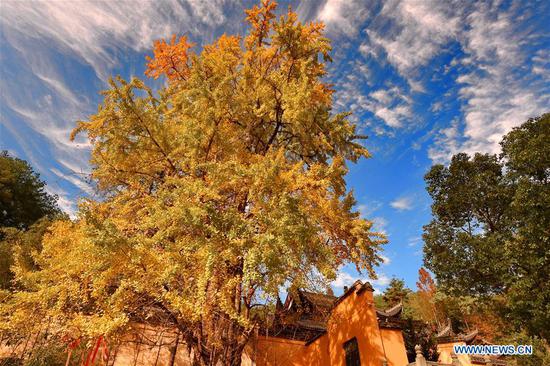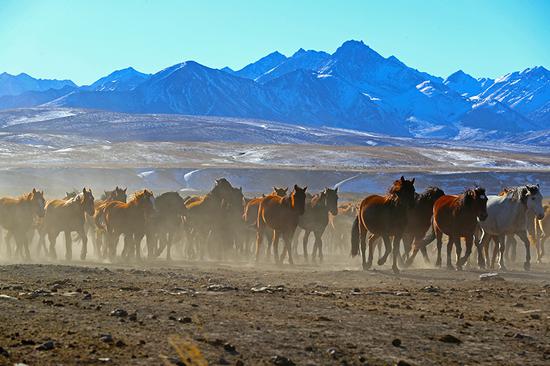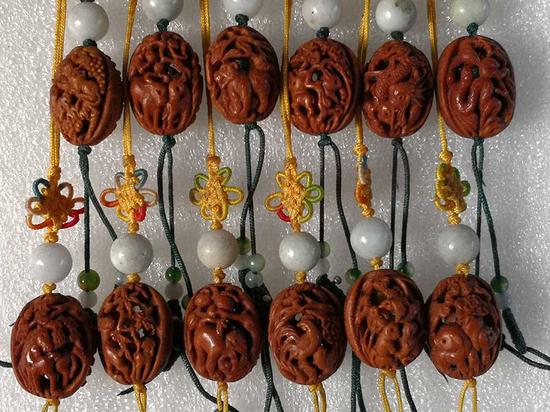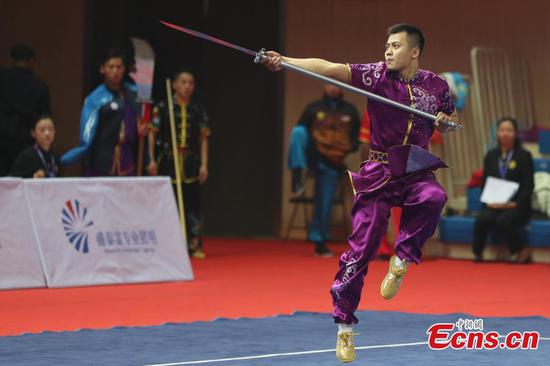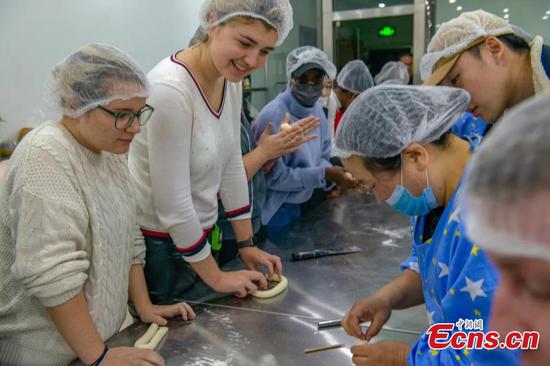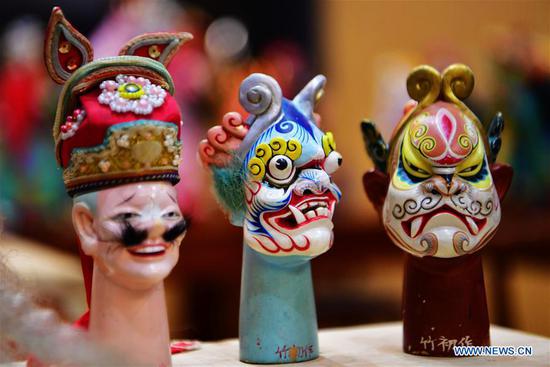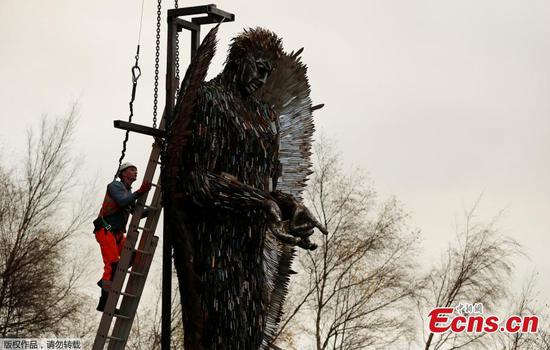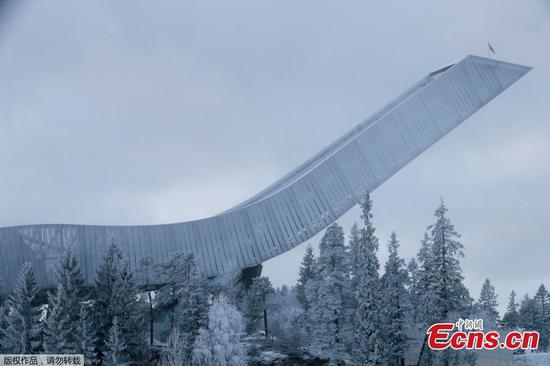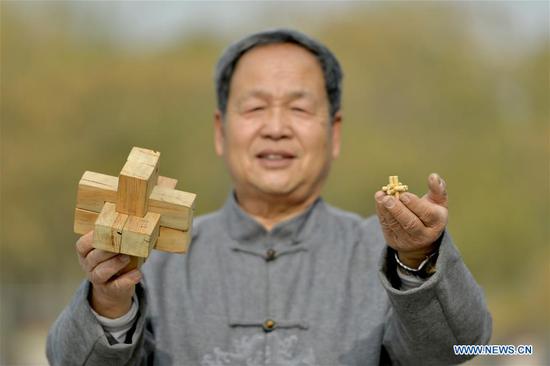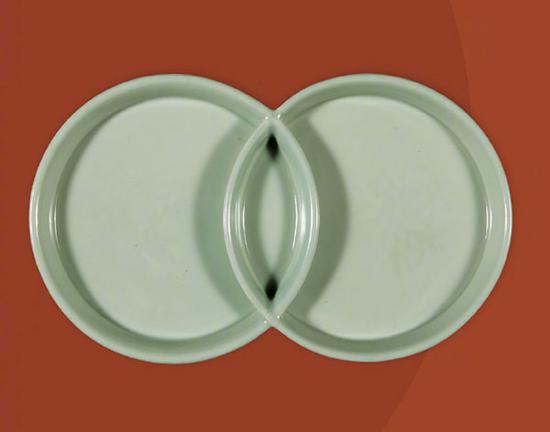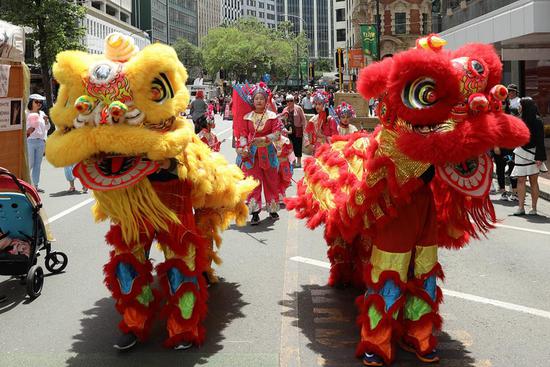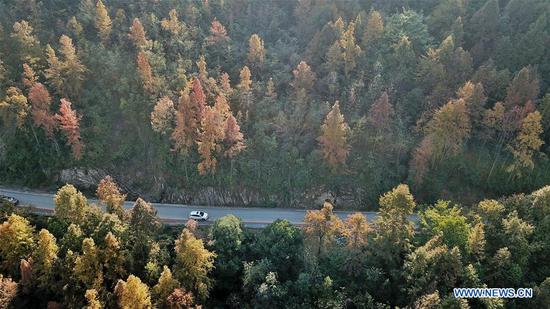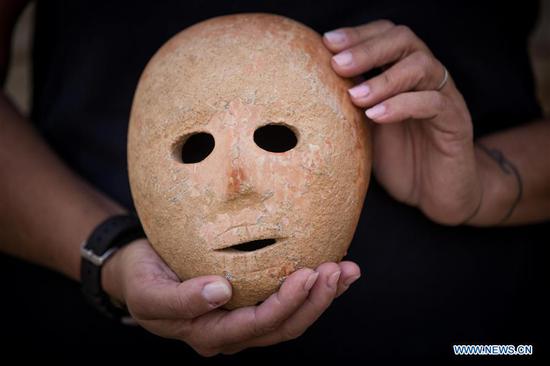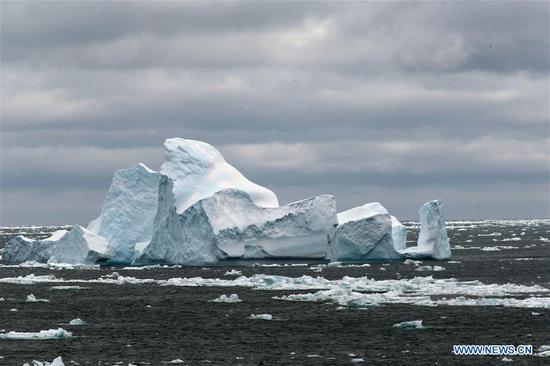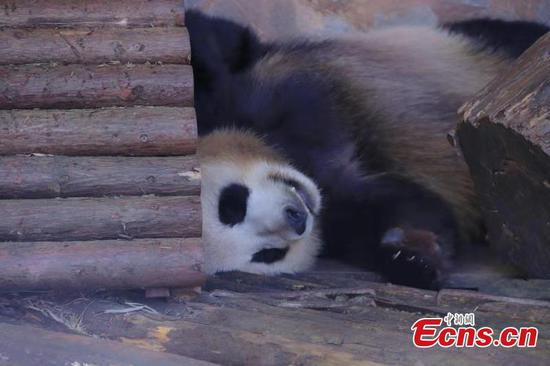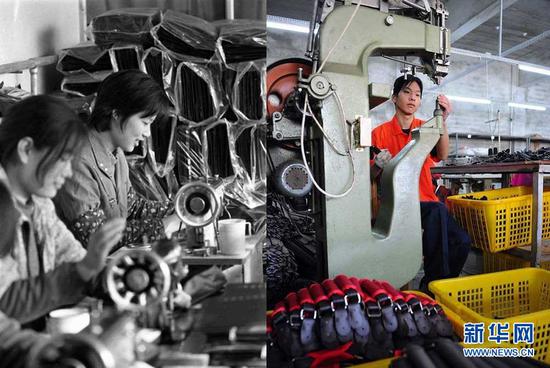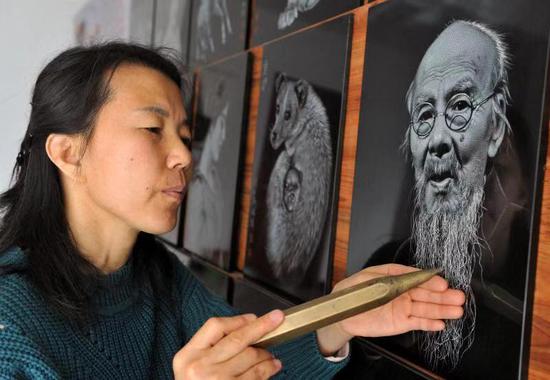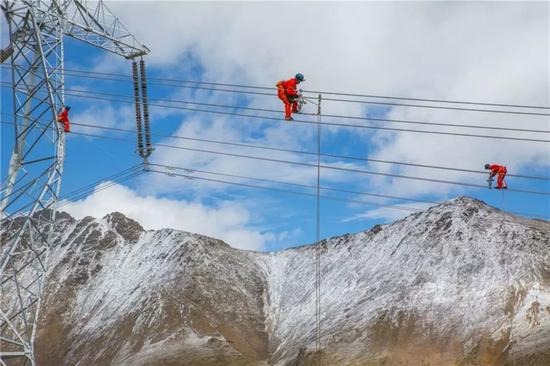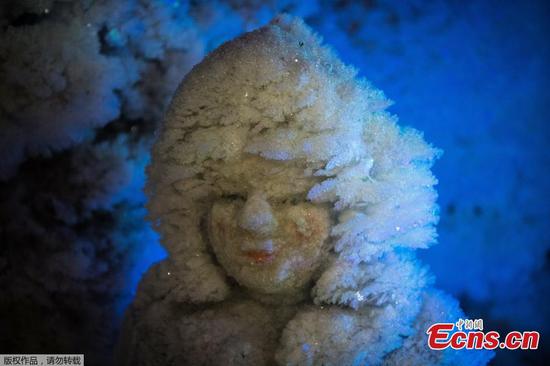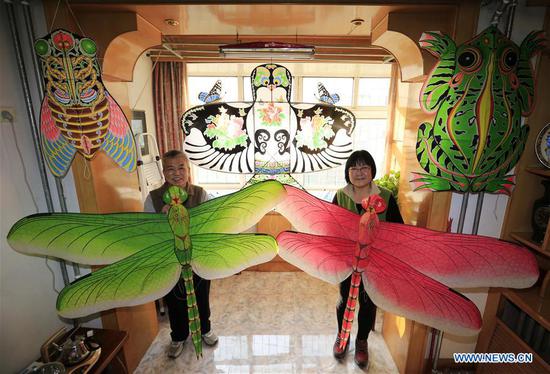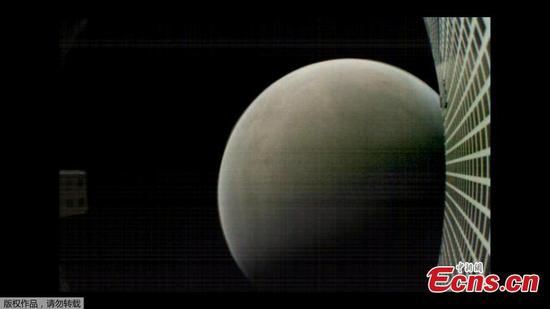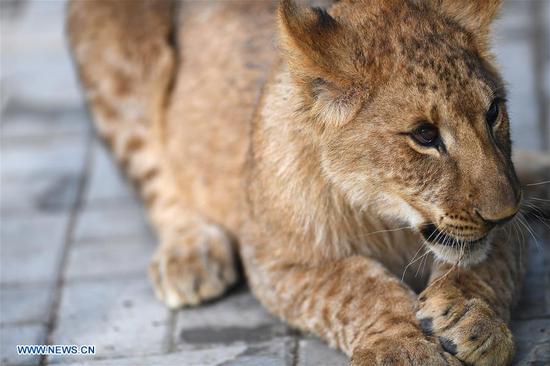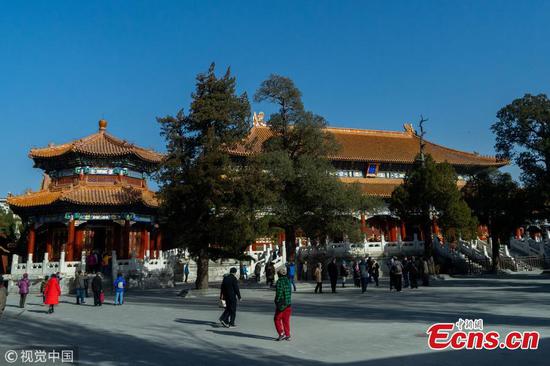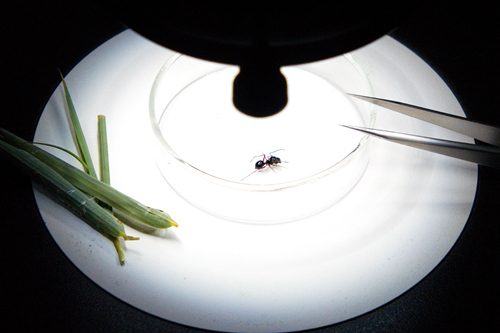
A jumping spider under observation in a lab. (Photo/Chinese Academy of Science)
The study came about after Chen Zhanqi, a scientist from Xishuangbanna Tropical Botanical Garden at the Chinese Academy of Science in southwest China's Yunnan Province, noticed that female Toxeus magnus, a species of jumping spider, discharging a yellowish fluid loaded with sugar, fats, and protein.
According to the study published in the journal Science on Thursday, researchers observed that in the first couple of days baby spiders sipped droplets of the milk around the nest, which contains nearly four times more protein than cow milk, while fat and sugar content is comparatively lower.
It was noticed that the newly hatched spiderlings soon started to suckle directly from their mothers' birth canal.
Upon closer inspection, mother spider seemed to provide parental care to her babies.
The researchers found that the mother continued to feed her babies after her young began leaving the nest to forage at about 20 days of age. Although, the suckling finally stopped after 40 days when the babies got fully matured.
Nick Royle, a behavioral ecologist at the University of Exeter in the UK said the results "help increase our understanding of the evolutionary origins of complex forms of parental care."
"These findings demonstrate that mammal-like milk provisioning and parental care for sexually mature offspring have also evolved in invertebrates, encouraging a re-evaluation of their occurrence across the animal kingdom, especially in invertebrates," said the study.









